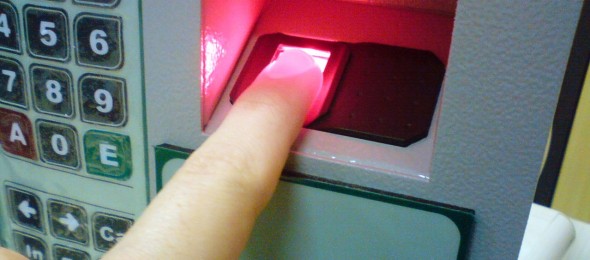An Illinois appellate court panel has ruled an employee’s biometric privacy claims are not arbitrable under the terms of an employment agreement. In Liu v. Four seasons Hotel, Ltd., No. 1-18-2645 (2019 IL App (1st) 182645, April 9, 2019), a group of hotel workers filed a class action lawsuit against a Chicago-based Four Seasons hotel in a Cook County circuit court over purported violations of the Illinois Biometric Information Privacy Act (“BIPA”). Under BIPA, companies operating in the State of Illinois are prohibited from collecting an individual’s biometric data without providing appropriate notice and obtaining written consent. Currently, the law provides a right of private action to “aggrieved” individuals.
According to the employees’ complaint, the Four Seasons violated BIPA by requiring them to scan their fingerprints as part of a company timekeeping program and sharing the information with a third party vendor. In response to the workers’ complaint, the Four Seasons filed a motion to compel the dispute to arbitration based on the employment contract (hereinafter, the “EmPact agreement”) each worker signed during the course of his or her employment. The “Complaint, Arbitration & Review for Employees” (“C.A.R.E.”) provision of the EmPact agreement requires that certain employment disputes with the hotel, such as wage-and-hour violations, be resolved through mandatory individual arbitration. The trial court denied the hotel’s motion to compel arbitration because the workers’ claims fell outside of the scope of the C.A.R.E provision. After that, the Four Seasons filed an interlocutory appeal with the First District Appellate Court in Chicago.
On appeal, the Four Seasons argued “(i) the plaintiffs’ claims constitute “wage or hour violation” claims because Four Seasons used the fingerprint data to track employees’ work hours, (ii) the arbitration provision was not unconscionable, (iii) the class action waiver provision does not affect the enforceability of the arbitration provision, and (iv) the question of arbitrability should be decided by an arbitrator.”
The appellate panel disagreed with the Four Seasons and held the hotel’s use of the biometric data did not transform the privacy case to a wage-and-hour claim. According to the court:
In short, the Act is a privacy rights law that applies inside and outside the workplace. Rosenbach v. Six Flags Entertainment Corp., 2019 IL 123186, ¶ 33 (“Through the Act, our General Assembly has codified that individuals possess a right to privacy in and control over their biometric identifiers and biometric information.”). Simply because an employer opts to use biometric data, like fingerprints, for timekeeping purposes does not transform a complaint into a wages or hours claim. Thus, the trial court properly found that plaintiffs’ claims were not subject to mandatory arbitration under the C.A.R.E. provision of the EmPact agreement.
In addition, the Chicago appeals court disagreed with the hotel’s assertion the question of arbitrability was one for an arbitrator to decide. The court said:
Four Seasons also contends that an arbitrator should decide whether plaintiffs’ claims fall within the scope of the arbitration agreement. As noted, “when the language of an arbitration clause is broad and it is unclear whether the subject matter of the dispute falls within the scope of arbitration agreement, the question of substantive arbitrability should initially be decided by the arbitrator.” Donaldson, Lufkin & Jenrette Futures, Inc., 124 Ill. 2d at 447-48. But, if it is clear that the dispute does not fall within the arbitration clause or agreement, the court must deny the motion to compel. See id. at 445. The language in the C.A.R.E. process is neither broad nor unclear, and specifies four types of arbitratable disputes. Collecting fingerprint data does not fall into any of the four categories and, accordingly, we affirm.
Finally, the Illinois First District Appellate Court declined to consider the hotel’s remaining arguments.
In an apparent response to a reportedly growing number of privacy-related lawsuits filed since the BIPA was enacted in 2008, the Illinois General Assembly is currently considering a measure that would amend the Act to remove an individual’s private right of action. Based on the language included in SB 2134, a purported violation of BIPA would instead be subject to oversight by the Illinois Department of Labor where it “results from the collection of biometric information by an employer for employment, human resources, fraud prevention, or security purposes.” Additionally, the proposed measure states “any violation of the Act constitutes a violation of the Consumer Fraud and Deceptive Business Practices Act and may be enforced by the Attorney General.” SB 2134 is now being considered by the General Assembly’s Assignments Committee.
Photo credit: Rachmaninoff [CC BY-SA 3.0]














